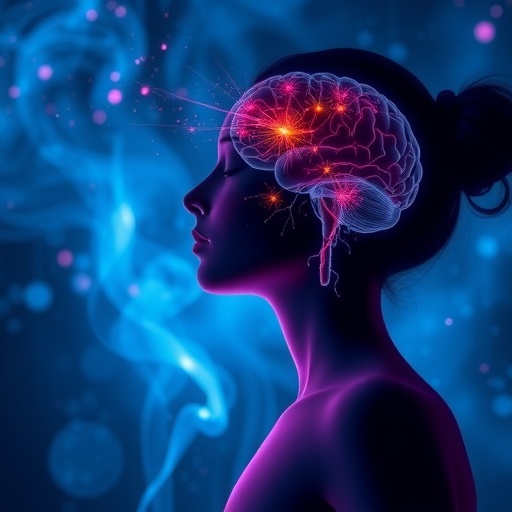In an era dominated by digital immersion and virtual interactions, the phrase “touch grass” has surfaced as a humorous, if not slightly dismissive, internet adage encouraging people to step away from their screens and engage with the natural world. However, emerging scientific reviews reveal that this meme harbors a profound therapeutic potential rooted in a complex interplay between sensory engagement and mental health.
Recent research spearheaded by Michelle Hand, a licensed clinical social worker and assistant professor at George Mason University, has shed light on the synergistic benefits of combining music and nature-based therapies to enhance emotional, psychological, and physical well-being. Unlike conventional treatment modalities which often emphasize pharmacological or talk-based interventions, this integrated approach leverages multi-sensory stimuli—encompassing auditory, visual, olfactory, and tactile inputs—to ground individuals in the present moment and facilitate holistic healing.
At the core of this research lies the concept that the coalescence of music and nature orchestrates a unique neurobiological engagement. Sensory stimuli from natural environments—such as the sound of rustling leaves, the scent of earth and flora, or the texture of grass underfoot—activate neural pathways associated with relaxation and cognitive restoration. Concurrently, music provides an expressive outlet and rhythmical element capable of modulating limbic system activity, thereby influencing emotional regulation and mood states. This dual engagement fosters neural plasticity and can mitigate symptoms linked to anxiety, depression, and stress.
This innovative framework diverges from traditional, often singular therapeutic approaches by emphasizing participant autonomy and choice. Activities documented in the literature include interactions such as animal care, gardening, outdoor singing, and movement-based expressions like dancing. These varied engagements not only enhance sensory stimulation but also empower individuals, reinforcing a sense of agency critical for mental health recovery and resilience. The adaptability of these interventions renders them particularly accessible and suitable across demographic spectra—from aging populations living with dementia to veterans and trauma survivors.
Hand’s team undertook an exhaustive scoping review, encapsulating 884 peer-reviewed articles spanning six major academic databases to identify studies examining integrated music- and nature-based interventions. The stringent review criteria distilled this voluminous literature to eight pertinent articles that specifically synthesized both therapeutic modalities. The relative paucity of such combined modality research underscores the pioneering nature of this work and the vast unexplored potential within multi-sensory integrated therapies.
The review highlights the neurocognitive and psychosocial mechanisms underpinning the efficacy of these interventions. Neural oscillations entrained by rhythmic music may enhance attentional networks and working memory, while the biophilic stimuli inherent to nature reduce hypothalamic-pituitary-adrenal axis hyperactivity, leading to cortisol reduction and stress alleviation. Together, these neurophysiological effects culminate in improved mood regulation, heightened emotional well-being, and a potential decrease in depressive symptomatology.
Moreover, the multi-sensory approach embodies a holistic, low-cost, and scalable mental health strategy with broad public health implications. Access barriers commonly associated with traditional psychotherapy, including stigma, economic burden, and logistical constraints, are mitigated through the naturalistic and flexible design of these interventions. The capacity for personalization also addresses diverse cognitive and physical abilities, ensuring inclusivity.
Michelle Hand’s broader research agenda underscores the relevance of nonpharmacologic, arts- and nature-based strategies in trauma recovery, particularly related to sexual violence and intimate partner violence across the lifespan. Her clinical experience with vulnerable populations informs a nuanced understanding of how tailored, multisensory interventions can facilitate neural regulation and foster psychological healing. The integration of ecotherapy—using care farms, horticultural therapy, and natural environments—and expressive arts like music, coalesces into a dynamic model addressing both trauma symptoms and downstream quality of life.
Prior to this integrative review, extensive research separately documented the benefits of music therapy and nature exposure in mental health contexts. Music therapy has demonstrated efficacy in modulating affective states and pain perception, and nature exposure has been correlated with enhanced cognitive functioning and emotional restoration. Bridging these research streams, Hand’s work pioneers a unifying methodology with promising applications for mental health clinicians and community-based health promotion initiatives.
The implications of this research are tangible and timely. As global mental health burdens escalate, particularly amid challenges introduced by digital overconsumption and social isolation, such multisensory interventions offer a viable adjunct or alternative to conventional treatments. Embedding these therapies within clinical practice and public health policies could redefine therapeutic paradigms, emphasizing sensory reconnection and environmental immersion as pillars of mental wellness.
The research team’s publication, Integrating music and nature: a scoping review of research on interventions involving both music- and nature-based strategies for mental health and wellbeing, published in Frontiers in Human Neuroscience in August 2025, signifies a foundational step toward delineating the precise mechanisms and optimal parameters of these combined interventions. It also calls for rigorous interdisciplinary studies to refine therapeutic protocols and validate outcomes across diverse populations.
In sum, the seemingly colloquial exhortation to “touch grass” transcends its meme status to encapsulate a scientifically substantiated therapeutic principle. The confluence of natural sensory stimuli and music offers a multifaceted, eco-therapeutic pathway that addresses the complexities of mental health through integrative, adaptable, and evidence-based approaches. Fostering such connections between body, mind, and environment reopens avenues for healing that are both ancient and innovatively modern.
Subject of Research: People
Article Title: Integrating music and nature: a scoping review of research on interventions involving both music- and nature-based strategies for mental health and wellbeing
News Publication Date: 25-Aug-2025
Web References:
DOI: 10.3389/fnhum.2025.1664304
Keywords: Mental health, Public health, Brain




